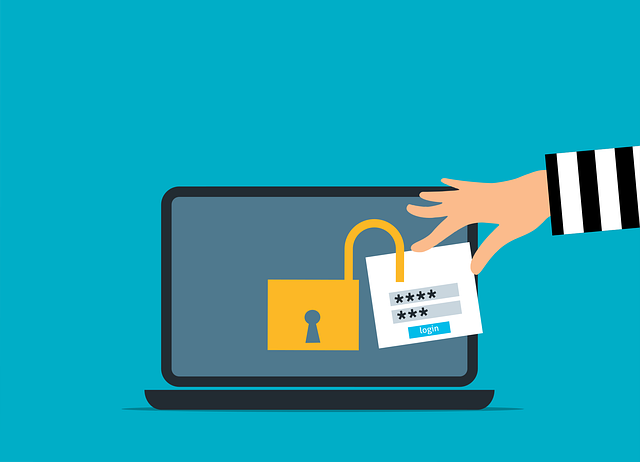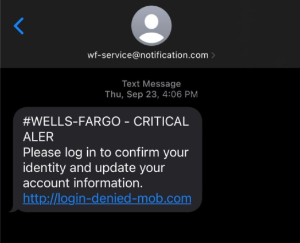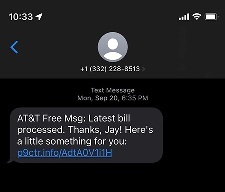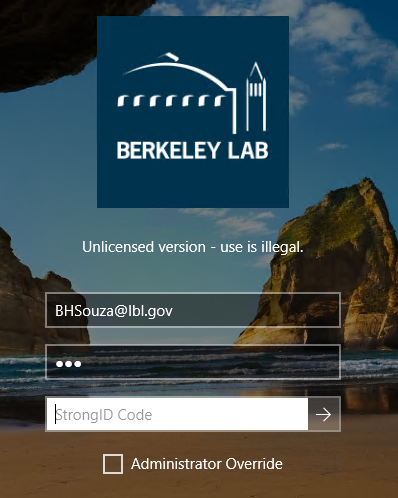Berkeley Lab IT has released Microsoft’s latest updates for Windows, which contain patches for critical security vulnerabilities. One of these, CVE-2022-26809, has been identified by the Cyber Security group as a mandatory update. As such, all Windows systems at the Lab MUST be updated and may be blocked from the network if they are out of compliance.
If you get a Reboot Reminder from BigFix, it means that Windows is attempting to install updates, and needs to be restarted to complete the process. Your system will remain vulnerable until the reboot is completed.
For systems that are not getting automatically updated, BigFix will prompt you to install the updates directly from our BigFix server. If you get a BigFix patch notification, you will need to take recommended actions in order to protect your system. BigFix will reboot your system upon completion.
Please note that systems that are enrolled in BigFix Passive Management Mode will not be patched or rebooted by BigFix, and users are responsible for installing required updates by running Windows Update. For information regarding Windows Update, see Microsoft’s site, Update Windows.
Thanks to Windows Server Update Service (WSUS), Windows Reboot Reminders, and BigFix, IT User Support is able to identify vulnerable software running on LBL systems. If you wish to receive proactive communications regarding the health of your computer, you can Download BigFix and install it. If you have further questions about BigFix, please Request Help.
Reminder: always keep your operating system up to date, your applications patched, and your system rebooted at least once a week! Follow IT Best Practices to ensure computer health.
Safety First - No Walk-ins
You Must Have an Appointment
Due to the current state of COVID, keeping everyone healthy and safe is the Lab’s highest priority. With that in mind, Berkeley Lab IT Support services will not accept any walk-ins. All visits are by appointment only until further notice.
You can set up an appointment by going to https://go.lbl.gov/itchat.
Thank you for your understanding and cooperation.
Hold on! Before you rush to upgrade, here are the things to do:
MacOS Monterey compatibility: Find out if your device will work with macOS Monterey
Software that works on macOS Big Sur with M1 or Intel Chipset should work with macOS Monterey.
Are all your peripheral devices compatible?
Is all your installed software compatible?
Do you have the installers for that software, if you need to reinstall?
Make sure a full backup of your computer is completed before upgrading
Once you go through the list and decide to upgrade
Do not be alarmed if you are getting the message "Your connection is not private".
The related IT team is working to resolve the issue.
In the meantime click Advanced and click Proceed to login.lbl.gov (Unsafe) and accept the risk to continue.
Feel free to reach out to IT if you have any questions. You can contact our IT support staff by:
Opening a chat session at go.lbl.gov/ITChat
Sending an email to [email protected]
Calling 510-486-4357
During the 2022 Wall-to-Wall inventory campaign, install BigFix to certify the existence of DOE tagged assets. Any DOE-barcoded system running BigFix will automatically be verified for inventory purposes, without the barcode being scanned. This saves tremendous time for property reps and staff. Approximately 4,600 DOE assets have been accounted for within the first week of January 2022.
Given COVID-19, the need for BigFix has become more crucial than ever for inventory tracking.
The use of BigFix during the 2021 Wall-to-Wall inventory was a successful outcome; let's make the 2022 Asset Inventory campaign even better.
To read more about BigFix, go to go.lbl.gov/BigFix.
To Download BigFix, go to go.lbl.gov/downloadBigFix.
To learn how to install BigFix, go to go.lbl.gov/installBigFix.
Feel free to reach out to IT if you have any questions. You can contact our IT support staff by:
Opening a chat session at go.lbl.gov/ITChat
Sending an email to [email protected]
Calling 510-486-4357
Starting at 9:45 AM on Friday, November 19, 2021, the IT Website (it.lbl.gov) will be offline for about 60 minutes while it is updated.
On Saturday, November 27, 2021, from 11 PM until midnight, IT will be performing a security upgrade on our SSO configuration with Google Workspace (Gmail, Calendar, Drive, Sites, Forms, etc.). This work should not impact users who are already logged into Google Workspace before the upgrade begins. However, this work will prevent new logins to Google Workspace, along with any third-party applications that use Google Sign-In, until the upgrade is completed.
The Performance Management Process (PMP) System will be offline the week of November 1, 2021 for scheduled maintenance. You can still access your performance review by searching your Google My Drive for "FY21 Performance Review". For all other requests, contact your division's Human Resources Division Process Owner.
Your upgrade to macOS Monterey has been blocked for now.
Apple has recently released their newest operating system, macOS Monterey. LBNL IT does not recommend upgrading to macOS Monterey at this time. We would like to caution our users to be careful before deciding to upgrade.
You need to ask yourself the following questions before upgrading to macOS Monterey:
Is your computer hardware compatible?
Are all your peripheral devices compatible?
Is all your installed software compatible?
Do you have the installers and installation keys for that software, if you need to reinstall?
If you do upgrade, do you have a full backup of your computer?
If you do upgrade, make sure to backup your computer before upgrading/installing.
Feel free to reach out to IT if you have any questions. You can contact our support staff by:
Opening a chat session at go.lbl.gov/ITChat
Sending an email to [email protected]
Calling 510-486-4357
Attempting to log in with blank, default, and common usernames and passwords is a widely used attack technique. Unlike most enterprise or corporate networks, Berkeley Lab has an open computing environment so changing default credentials is especially important. To facilitate science and collaboration, most networks are open both to other computers at Berkeley Lab and to the global, public internet as a whole.
Background
Default passwords are standard, known userid/password pairs that are preinstalled into an operating system, database or software. This information is likely widely available in the system manual, online documentation, forums, and other sites. Default passwords are useful for installations, access management, support and programming purposes but, if left unsecured, still pose a serious security risk to all Berkeley Lab systems. An attacker can completely compromise a system that uses default passwords and then use it as a foothold to attack the rest of the laboratory. Consistent with Department of Energy and Office of Science requirements, Berkeley Lab manages risk to systems using a cost-effect approach that balances mission and risk. See RPM - Cyber Security Risk Management Approach.
All Laboratory employees and affiliates are responsible for the life cycle management of security, operations, backups, and maintenance of Laboratory information and IT that they use or manage. Review the RPM - Lifecycle Management for Information, Hardware, Software, and Services for more information.
Impacted Systems
Recently, the IT Division’s Cyber Security group uncovered several instances of default passwords in use on the Berkeley Lab network. Through routine scanning Cyber Security found default credentials in active use throughout the Lab RaspberryPi devices, personal network equipment, and with new software installations with services like Grafana and Nagios.
Each occurrence could result in a security issue for the Lab network. It is important to identify software and systems that are likely to use default passwords. Provided below are other examples of systems and devices which commonly use default passwords:
Routers, access points, switches, firewalls, and other network equipment
Software packages, including vendor demonstrations or customer support portals
Databases and management systems, including IDMS, Oracle, and Microsoft SQL
Web applications and administrative web interfaces
Embedded systems and devices, e.g. BIOS PC computer chips, Unix root user accounts, out-of-band management interfaces (IPMI, iDRAC, ILO, etc)
Industrial Control Systems (ICS) systems
Remote terminal interfaces like Telnet and SSH
Recommended Actions
Default passwords are easily exploited since information is readily available and so many systems are left unmonitored. Remain vigilant about keeping the Lab environment secure by taking the following steps:
Always Change Default Passwords. Change default passwords as soon as possible and absolutely before deploying the system on a network with internet access. Use a sufficiently strong and unique password. See Choosing and Protecting Passwords - Security Tip (ST04-002).
Use a Password Manager. Use a password manager to help with replacing default logins, creating strong passwords, and reminders to update or secure credentials. See IT FAQ on LastPass password manager or search software.lbl.gov.
Restrict Network Access. Restrict network access to trusted hosts and networks and only allow internet access to required network services. If remote access is required, use secure access methods such as VPN, or SSH. See Minimum Security Requirements.
Maintain Software and Firmware Updates. Turn on automatic updates for your programs and devices to ensure the latest security patches are applied. If automatic updating is not an option, set a calendar reminder to review updates and credentials in a timely manner. Review IT Best Practices.
For assistance with configuring secure systems and networks, contact the IT division by emailing [email protected] or submit a support request at help.lbl.gov.
In support of Cybersecurity Awareness Month, the IT Division is highlighting phone scams and offering tips on how to avoid attacks. Scammers often take advantage of busy times throughout the year when people are distracted or vulnerable, such as during holidays, tax season, back-to-school, and global events like coronavirus. Every year, Americans report billions of dollars in total losses to scam callers. In addition to practicing proactive defensive security measures, education and outreach remain an integral component to avoiding and preventing phone scams. Continue reading to learn more, view examples, and recommendations.
Key Data
The 2021 Truecaller report indicates a 22% increase over the past year in the number of Americans who lost funds due to phone scams and 59% who received scam calls related to COVID-19. Of those who lost money to phone scams, 60% were due to calls made using automated dialing technology, i.e. robocalls. About 3 in 5 Americans reported an overall increase in spam calls and/or text messages (see SMS phishing).
Illegal and unwanted calls comprise the largest source of consumer complaints according to a 2021 Federal Communications Commission (FCC) report. Voice service providers continue to make advancements in analytic call blocking and labeling tools to protect consumers. Companies report few false positives and no public safety issues.
A survey of local consumer data from the Federal Trade Commission (FTC) reveals the top 5 fraud categories in the San Francisco, Oakland, Berkeley metro area to be imposter scams, online shopping, internet services, prizes or sweepstakes, and telephone and mobile services.
Example 1:
In the examples below, a scammer uses local numbers and an automated message to contact you regarding a fake expired vehicle warranty. Auto warranty scams were the top unwanted call complaint filed with the FCC in 2020. If you accidentally answer a robocall or press a button in response to a recording, simply hang up immediately. Be sure to report the message as spam and block the number.
Example 2:
The examples below are provided by the FCC and focus on COVID-19 robocall scams. The audio transcripts both reference coronavirus and a critical and urgent need for your attention. These scammers prey on victims during emergencies and may offer free home testing kits, fake health insurance, vaccine appointments, loan repayment offers or other financial assistance.
Do not respond to calls from unknown numbers. The Department of Justice has a hotline for consumers who believe they have been a victim of a scam or fraud related to COVID-19. The National Center for Disaster Fraud Hotline is 1-866-720-5721.
Social Security Scam: Hello this is a call from the Social Security Administration. During these difficult times of the coronavirus, we regret to inform you that we have got an order to suspend your socials immediately within 24 hours due to suspicious and fraudulent activities found on your socials. We are contacting you as this case is critical and needs your urgent attention. To get more information about this case please call immediately on our department number 888-991-2325. I repeat 888-991-2325.
Listen to sample audio. (Source: Nomorobo)Diabetic Test Kit Scam: If you are diabetic and using insulin, we can qualify you to get a free diabetic monitor and a complimentary testing kit for coronavirus. To learn more, please press 1, otherwise please press 2.
Listen to sample audio. (Source: YouMail)
Example 3:
Tech support scams are a common scheme for criminals to gain remote access to your computer. They may call you and identify themselves as Microsoft or Apple employees and claim your computer is infected with a virus or has a technical problem only they can fix.
Tech Support Scam: In this example, an FTC investigator records a scammer who insists her computer is infected and guides her to purchasing antivirus software. Listen to an FTC undercover call with a tech support scammer.
Keep in mind that real tech companies will not contact you to let you know there’s a problem with your computer. Real computer security warnings will not instruct you to call a phone number or purchase a product. If you are concerned about your computer security, contact [email protected].
Tips for Recognizing Phone Scammers
Familiar entities: Scammers often impersonate representatives of a well-known organization, e.g., IRS, Medicare, Social Security, a utility or tech company, e.g. PG&E, Microsoft, and Apple, or even nonprofits and charitable groups.
Spoofed numbers: Scammers might use technology to spoof or mimic fake phone numbers appearing on your caller ID. The phone number may have a local area code or appear related to a government or work agency.
Critical Timeline: Scammers will indicate there is an urgent, time-sensitive problem you need to resolve or perhaps a prize or investment to claim quickly. The emphasis is on guiding you to act as fast as possible under threat or duress.
Payment Method: Scammers frequently demand specific methods for payment which are difficult to reverse, such as via money order, prepaid cards, gift cards, use of a money transfer company, a bank wire transfer, or depositing a fake check.
Recommended Actions to Stay Safe
Be aware of the attack methodology, remain vigilant, and report anything suspicious. Exercise caution with unexpected requests, offers, or phone calls not initiated by you. View the social engineering page for more tips on how to recognize scams.
Do not share your private login or financial information. If you are unsure, verify the request with the organization directly through the official website or phone number.
Do not grant access to your devices to an unknown caller unless you initiated the request and can verify they are a legitimate representative of your support group.
Ensure your equipment meets Berkeley Lab Minimum Security Requirements.
Stay up to date with required Cyber Security Training and Secure Your Computer.
Report any suspected or known breach of personal information to [email protected] as soon as possible. For other related questions, please email [email protected] to open a ticket.
How to Block and Report Spam Calls
Block the caller on your mobile and locate the option to label the call as spam.
Block phone numbers on iOS and Recognize and avoid phony support calls
Block a phone number on Android and Use caller ID & spam protection
Federal Communications Commission (FCC)
Federal Trade Commission (FTC)
Report a Scam to the FTC at ReportFraud.ftc.gov
Did you know that October is national Cybersecurity Awareness Month? The IT Division is releasing a series of educational tips and reminders to promote the importance of cybersecurity across Berkeley Lab. Be sure to also check out events and learning opportunities hosted by UC Berkeley and UCOP at https://security.berkeley.edu/cybersecurity-awareness-month-2021.
Recently, the IT Division Cyber Security team noticed an increase in phishing attacks via SMS text message. Attackers are able to avoid email filtering by phishing via SMS messages Phishing typically involves attempts to acquire or disclose personally identifiable information (PII) such as your username, password, and other sensitive information. The phishers would then steal your username and password to use on the real website or sell your information to other scammers. Real examples are provided below followed by recommended actions to take and instructions for reporting spam messages.
Example 1:
In this example, the attacker sends a text from a fake address mimicking the name of a financial institution and alerts the user to log in with personal account information.
Notice the domain of the sender and link do not match the institution’s official address. If you logged into this lnk, your bank credentials would be stolen. Legitimate companies will not ask for information about an account via SMS. Some links may point to a spoofed website which closely emulates the authentic version. Do not click the links. Contact the institution directly from their official website to verify the validity of messages.
Example 2:
In the following examples, the attacker sends an SMS message from an unknown number and asks the user to follow a link to schedule or confirm a change in a delivery.
Scammers craft these messages to trick you into clicking a malicious link which then sends you to a fake portal or may install harmful malware on your phone. Do not click the links and report such messages as spam.
Example 3:
This example is similar to Example 2 but indicates the user receives a small gift for paying a bill.
Attackers may make claims of problems with an account or promises of free gifts. It is common for scammers to send fake messages asking a user to take some action before claiming a package or a prize. Be skeptical of unexpected opportunities which sound too good to be true. Do not trust requests to share or confirm personal information via text.
Recommended Actions
Take steps to ensure devices meet Minimum Security Requirements.
Follow IT guidance to help secure computers: Tips to Secure Your Computer.
Stay up to date with Cyber Security Training requirements.
The best defense for these attacks is to be aware of the attack methodology, remain vigilant, and report anything suspicious. See the social engineering page for more tips on how to avoid phishing and other scams.
Report any suspected or known breach of personal information to [email protected] as soon as possible. For other related questions, please email [email protected] to open a ticket.
How To Report Spam Text Messages
Report it on the messaging app you use. Look for the option to report junk or spam.
Copy the message and forward it to 7726 (SPAM).
Report it to the Federal Trade Commission at ReportFraud.ftc.gov.
Windows has recently released their newest operating system, Windows 11. LBNL IT does not recommend upgrading to Windows 11 at this time. We would like to caution our users to be careful before deciding to upgrade or install.
You need to ask yourself the following questions before choosing to upgrade:
Is your computer hardware compatible?
Are all your peripheral devices compatible?
Is all your installed software compatible?
Do you have the installers and installation keys for that software, if you need to reinstall?
If you do upgrade, make sure to backup your computer before upgrading/installing.
Feel free to reach out to IT if you have any questions. You can contact our support staff by:
Opening a chat session at go.lbl.gov/ITChat
Sending an email to [email protected]
Calling 510-486-4357
Please be advised that as a result of vendor delays, users of a small number of Windows Systems at Berkeley Lab may see an error message about an illegal license on the WIndows logon screen, starting on Friday September 17, 2021.
The message will say “Unlicensed version - usage is illegal”, although there is no illegal or unlicensed software on the system. The message is related to software called LinOTP, which is used to manage Windows logins. Berkeley Lab IT is actively updating the LinOTP license key on all workstations, but some systems may not have the new license key installed prior to its expiration.
You can safely ignore the message and log in as normal, or you can contact the IT Help Desk ([email protected]) to ensure the license is updated as quickly as possible.
Please take action to update to iOS 14.8, macOS Big Sur 11.6, and watchOS 7.6.2 on Berkeley Lab and personal Apple systems immediately.
Last week, The Citizen Lab informed Apple about a new zero-click iMessage exploit targeting Apple's image rendering library. This vulnerability allows your Apple device to be compromised with no interaction from you nor any visibility indicators to you. Called FORCEDENTRY, the exploit can infect iPhone, iPad, Apple Watch, or Mac systems with the Pegasus spyware, providing access to the camera and microphone in addition to allowing access to text messages, phone calls, and emails.
"This spyware can do everything an iPhone user can do on their device and more," said Citizen Lab senior researcher John-Scott Railton. You can read more details about this issue in the Citizen Lab writeup.
On September 13, Apple released a suite of new updates for iOS, macOS, and watchOS to fix this bug.
Given the severity of the exploit, you should update to iOS 14.8, macOS Big Sur 11.6, and watchOS 7.6.2 on Berkeley Lab and personal systems you control as soon as you can.
Thank you in advance for helping to Protect Science, it’s greatly appreciated.



